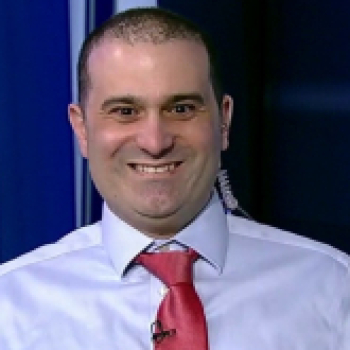In a speech today at the Institute of Economic Affairs, Rachel Lomax - Deputy Governor for Monetary Policy - says that the outlook for 2008 and beyond has changed dramatically from forecasts made a year ago, even though both inflation and output growth have so far turned out broadly as expected. This change in view reflects two main factors: the possible future impact of the continuing financial crisis in financial markets; and the renewed build up in global inflationary pressures associated, with soaring energy and food prices.
On the first, Rachel Lomax says the MPC's central judgement "is that financial stress will act as a significant drag on demand over the next two years. But there is a high level of uncertainty about this and …the risks, as they affect output, are tilted to the downside". These are that the financial crisis will persist and possibly intensify, and that over time tighter credit conditions and asset price weakness will combine to sap the strength of overall demand, putting downward pressure on inflation in the medium term.
She emphasises that history does not give a clear steer. The 'accident waiting to happen' characterisation of the current financial crisis lends itself to a wide range of predictions, from the relatively benign to the apocalyptic. And while it seems highly likely that growth has been supported by easier credit over the last few years, conventional economic models do not help very much when it comes to quantifying the effect of change in credit conditions.
On the second, Rachel notes that the most recent build up of global cost pressures is just the latest episode in a remarkable period of soaring commodity prices. These have not yet fully fed through into consumer prices, but from next month CPI inflation is likely to rise more sharply. She stresses that there is essentially nothing the MPC can do about this, and its remit does not require it to raise interest rates sharply to counteract this rise in inflation - it can decide what is appropriate in the light of all the circumstances.
Rachel Lomax says that "the real risk facing the Committee is that a further period of above target inflation, prompted by a cost shock over which it has no immediate control, will lead people to revise their expectations about future inflation, and to act accordingly. This will make it more costly to bring inflation back to target".
Given this, she says "it is a matter of intense interest to understand how people form their expectations about inflation". If the credibility of the monetary policy framework itself has been the key to keeping expectations well-anchored in the past, then inflation expectations may prove rather resilient to short term shocks. But if maintaining an excellent track record has been crucial, the situation may be more fragile.
Finally, Rachel Lomax notes that the increased level of uncertainty surrounding the Committee's forecasts implies an increase in the perceived risk of two rather unattractive outcomes - either that growth slows too sharply, or that inflation does not return to target following an upward spike. In this situation she argues that "…it is not unreasonable that the Committee will be more sensitive than usual to changes in the balance of risk".
To conclude, she argues that "a temporary pick-up in inflation - by itself - does not mean that the Committee needs to tolerate a significant weakening in demand. But if inflation expectations appear to be persistently elevated, the Committee will need to tolerate more slack to keep inflation on target. And that means it will have less scope to respond to slowing demand - the risk posed by the current turmoil in financial markets"








Add a Comment
We encourage you to use comments to engage with other users, share your perspective and ask questions of authors and each other. However, in order to maintain the high level of discourse we’ve all come to value and expect, please keep the following criteria in mind:
Enrich the conversation, don’t trash it.
Stay focused and on track. Only post material that’s relevant to the topic being discussed.
Be respectful. Even negative opinions can be framed positively and diplomatically. Avoid profanity, slander or personal attacks directed at an author or another user. Racism, sexism and other forms of discrimination will not be tolerated.
Perpetrators of spam or abuse will be deleted from the site and prohibited from future registration at Investing.com’s discretion.